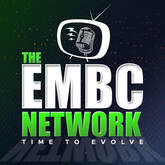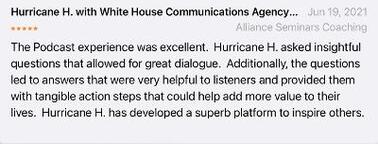|
Medicare is a federal health insurance program primarily for people aged 65 and older, as well as for certain younger individuals with disabilities and those with end-stage renal disease (ESRD). It provides coverage for various healthcare services, including hospital stays, medical appointments, preventive care, and prescription drugs. Here are some key points about Medicare:
Parts of Medicare: Medicare is divided into several parts, each covering different types of services: Medicare Part A (Hospital Insurance): Covers inpatient hospital stays, skilled nursing facility care, hospice care, and some home health care services. Medicare Part B (Medical Insurance): Covers outpatient medical services, such as doctor's visits, preventive care, lab tests, durable medical equipment, and some home health care services. Medicare Part C (Medicare Advantage): Offered by private insurance companies, Medicare Advantage plans provide all Part A and Part B benefits, often including prescription drug coverage (Part D), and may offer additional benefits like vision, dental, and hearing coverage. Medicare Part D (Prescription Drug Coverage): Provides coverage for prescription drugs through private insurance plans approved by Medicare. Eligibility: Most people become eligible for Medicare when they turn 65, but eligibility can also be based on disability or ESRD. Individuals who are already receiving Social Security or Railroad Retirement Board benefits are usually enrolled automatically in Medicare when they become eligible. Enrollment: There are specific enrollment periods for Medicare: Initial Enrollment Period (IEP): Begins three months before the month of an individual's 65th birthday and ends three months after their birthday month. Annual Enrollment Period (AEP): Occurs each year from October 15 to December 7, during which individuals can make changes to their Medicare coverage. Special Enrollment Periods (SEPs): Allow individuals to enroll in or make changes to their Medicare coverage outside of the standard enrollment periods under certain qualifying circumstances. Costs: While some aspects of Medicare, like Part A, may be premium-free for most beneficiaries, there are costs associated with other parts of Medicare, including deductibles, copayments, and premiums. The specific costs vary depending on the type of Medicare coverage and the individual's circumstances. Supplemental Coverage: Many beneficiaries choose to purchase additional coverage, such as Medicare Supplement Insurance (Medigap) policies, to help cover out-of-pocket costs not covered by Original Medicare. These policies are offered by private insurance companies and help fill in the gaps in Medicare coverage. Overall, Medicare plays a crucial role in providing healthcare coverage to millions of Americans, ensuring access to essential medical services and helping to protect against the financial burden of healthcare costs in retirement or during periods of illness or disability. A Little more about Part C. Medicare Part C, also known as Medicare Advantage, is a type of Medicare health plan offered by private insurance companies that contract with Medicare to provide all Part A (hospital insurance) and Part B (medical insurance) benefits. In addition to covering hospital stays and medical services, Medicare Advantage plans may offer additional benefits such as prescription drug coverage (Part D), vision, dental, hearing, and wellness programs. Here are some key points about Medicare Part C: Coverage Integration: Medicare Advantage plans combine the benefits of Medicare Part A and Part B into a single plan. This means that beneficiaries receive their hospital and medical coverage through their Medicare Advantage plan rather than through Original Medicare. Variety of Plan Options: Medicare Advantage plans come in various types, including Health Maintenance Organizations (HMOs), Preferred Provider Organizations (PPOs), Private Fee-for-Service (PFFS) plans, Special Needs Plans (SNPs), and others. Each type of plan may have different rules and restrictions regarding network coverage, referrals, and out-of-pocket costs. Additional Benefits: Many Medicare Advantage plans offer benefits beyond what is covered by Original Medicare, such as prescription drug coverage, vision, dental, hearing, fitness memberships, and telehealth services. These extra benefits can vary depending on the plan and the insurance company offering it. Costs and Premiums: Medicare Advantage plans may have premiums in addition to the Part B premium paid to Medicare. However, some plans have $0 premiums, particularly HMOs. Beneficiaries are still responsible for paying their Part B premium, along with any applicable copayments, coinsurance, and deductibles required by the plan. Out-of-Pocket Maximum: Medicare Advantage plans have an annual out-of-pocket maximum, which limits the amount beneficiaries have to pay for covered services in a given year. Once the out-of-pocket maximum is reached, the plan typically covers 100% of covered services for the remainder of the year. Provider Networks: Most Medicare Advantage plans have provider networks, meaning beneficiaries may need to use doctors, hospitals, and other healthcare providers within the plan's network to receive full coverage. Some plans offer out-of-network coverage, but it may come with higher costs. Annual Enrollment Period: Beneficiaries can generally enroll in, switch, or disenroll from a Medicare Advantage plan during the Annual Enrollment Period (AEP), which runs from October 15 to December 7 each year. Additionally, there are other enrollment periods, such as the Initial Enrollment Period (IEP) and Special Enrollment Periods (SEPs), during which individuals may be eligible to enroll in or make changes to their Medicare Advantage coverage. Overall, Medicare Part C, or Medicare Advantage, offers beneficiaries an alternative way to receive their Medicare benefits through private insurance plans, often with additional benefits and services beyond what is covered by Original Medicare. A little more about Med Supps, Medicare Supplement Insurance, also known as Medigap, is private health insurance designed to supplement Original Medicare (Part A and Part B) coverage by helping to pay for some of the out-of-pocket costs that Medicare does not cover. Here are some key points about Medicare Supplement Insurance:Coverage Standardization: Medicare Supplement plans are standardized by the federal government, meaning that each plan type offers the same basic benefits, regardless of which insurance company sells it. There are ten standardized plans labeled A, B, C, D, F, G, K, L, M, and N. However, not every insurance company offers all plan types. Basic Benefits: Medicare Supplement plans typically help cover some or all of the following out-of-pocket costs associated with Original Medicare: Medicare Part A coinsurance and hospital costs Medicare Part B coinsurance or copayments Blood (first three pints) Part A hospice care coinsurance or copayments Skilled nursing facility care coinsurance Part A deductible Part B deductible (for Plan C and Plan F only) Part B excess charges (charges above the Medicare-approved amount) Freedom of Choice: With Medicare Supplement plans, beneficiaries have the freedom to see any doctor or specialist who accepts Medicare, without being restricted by network limitations. This flexibility can be especially valuable for individuals who travel frequently or who live in areas with limited healthcare provider options. Premiums: Medicare Supplement plans typically require monthly premiums in addition to the premiums paid for Medicare Part B. The premium amount varies depending on factors such as the plan type, the insurance company, the beneficiary's age, and the location. Guaranteed Issue Rights: In most states, beneficiaries have a guaranteed issue right to purchase a Medicare Supplement plan during certain time frames, such as the six-month Medigap Open Enrollment Period that starts when they are both 65 or older and enrolled in Medicare Part B. During this period, insurance companies cannot deny coverage or charge higher premiums based on pre-existing conditions. Medicare Prescription Drug Coverage: Medicare Supplement plans do not include prescription drug coverage. Beneficiaries who want prescription drug coverage must enroll in a standalone Medicare Part D Prescription Drug Plan. Renewability: As long as premiums are paid, Medicare Supplement plans are guaranteed renewable, meaning that insurance companies cannot cancel the policy as long as the beneficiary continues to pay the premiums. Overall, Medicare Supplement Insurance can provide valuable financial protection and peace of mind by helping to cover some of the out-of-pocket costs associated with Original Medicare. It's important for beneficiaries to compare plan options carefully and choose the one that best meets their healthcare needs and budget. Stop loss is a risk management strategy commonly used in financial trading and investing. It refers to an order placed with a broker or trading platform to automatically sell a security (such as a stock or cryptocurrency) when it reaches a certain predetermined price level. The purpose of a stop loss order is to limit potential losses on a trade or investment position.
Here's how stop loss works:
In self-insurance, an organization assumes the financial risk of providing insurance coverage for its own employees or assets, rather than purchasing traditional insurance policies from external insurers. Here's how self-insurance typically works:
Overall, self-insurance can be an effective risk financing strategy for organizations that have the financial resources and risk tolerance to assume their own insurance liabilities. Exploring the Enchanting World of Gratia Cantantes with Gabriel GherasimIn the captivating realm of music, where melodies soar and harmonies intertwine, there exists a unique and inspiring choral ensemble known as Gratia Cantantes. Led by the renowned writer and educator, Gabriel Gherasim, this extraordinary group has been captivating audiences worldwide with their exceptional vocal performances and their unwavering commitment to the power of music. The Maestro's Journey: Gabriel Gherasim's Diverse BackgroundGabriel Gherasim's path to becoming the guiding force behind Gratia Cantantes is a testament to his multifaceted talents and his unwavering passion for the arts. With a Bachelor of Arts in Social Sciences and a Master's Degree in Negotiation, Meditation, and Conflict Resolution, Gherasim's educational background is as diverse as the literary works he has produced. Beyond his academic achievements, Gherasim has also dedicated himself to the field of counseling, becoming a certified alcoholism and substance abuse counselor with over 18 years of experience in counseling and supervision. This unique blend of scholarly pursuits and hands-on experience has imbued Gherasim with a deep understanding of the human condition, which he seamlessly infuses into his artistic endeavors. The Birth of Gratia Cantantes: Uniting Voices, Touching HeartsIt was Gherasim's lifelong love for music and his desire to create a platform for exceptional vocalists that led to the formation of Gratia Cantantes. This elite choral ensemble, which Gherasim has nurtured and guided with unwavering dedication, has become a beacon of excellence in the world of classical and contemporary choral music. Gratia Cantantes, which translates to "Singers of Grace" in Latin, is a reflection of Gherasim's vision to create a space where talented vocalists can come together to share their gifts and inspire audiences with the transformative power of music. Through rigorous rehearsals, meticulous attention to detail, and a deep understanding of the emotional resonance of each piece, Gratia Cantantes has become a true embodiment of the grace and beauty that can be found in the human voice. Captivating Performances: Gratia Cantantes on the Global StageThe success of Gratia Cantantes can be measured not only in the accolades they have received but also in the profound impact they have had on audiences around the world. Under Gherasim's expert guidance, the ensemble has embarked on numerous international tours, captivating audiences with their technical prowess, emotional depth, and sheer artistry. From prestigious concert halls in Europe to intimate venues in Asia, Gratia Cantantes has consistently delivered performances that leave an indelible mark on those who witness them. Their repertoire spans a wide range of genres, from the timeless masterpieces of classical composers to the stirring works of contemporary choral composers, showcasing the ensemble's versatility and their ability to connect with audiences on a profound level. The Power of Gratitude: Gherasim's Philosophical ApproachUnderlying the artistic excellence of Gratia Cantantes is Gherasim's deep-rooted belief in the transformative power of gratitude. As a certified alcoholism and substance abuse counselor, Gherasim has witnessed firsthand the healing and empowering effects of cultivating a grateful mindset. This philosophy has become a cornerstone of his approach to leading Gratia Cantantes, infusing each performance and every aspect of the ensemble's work with a profound sense of appreciation and reverence. Gherasim's unwavering commitment to the power of gratitude is evident in the way he inspires his singers to approach their craft. By fostering an environment of gratitude and mindfulness, Gherasim encourages his vocalists to connect with the music on a deeper level, to pour their hearts into each note, and to share their gifts with the world in a way that transcends the boundaries of mere performance. Gratia Cantantes: A Tapestry of Cultures and TraditionsOne of the hallmarks of Gratia Cantantes is its ability to seamlessly blend diverse cultural and musical traditions, creating a rich tapestry of sound that resonates with audiences from all walks of life. Gherasim's extensive knowledge of global music and his deep respect for cultural exchange have been instrumental in shaping the ensemble's repertoire and performance style. From the haunting melodies of Eastern European folk songs to the soaring harmonies of African choral traditions, Gratia Cantantes embraces the world's musical heritage, weaving it into a tapestry of sound that is both captivating and deeply moving. This commitment to cultural diversity not only enhances the ensemble's artistic expression but also serves as a powerful testament to the universal language of music and its ability to bridge divides and foster understanding. The Legacy of Gratia Cantantes: Inspiring the Next GenerationAs Gratia Cantantes continues to captivate audiences and leave an indelible mark on the world of choral music, Gherasim's vision extends far beyond the ensemble's current success. He is committed to nurturing the next generation of exceptional vocalists, passing on his knowledge, expertise, and passion for music to those who will carry the Gratia Cantantes legacy into the future. Through masterclasses, workshops, and mentorship programs, Gherasim and the Gratia Cantantes team are dedicated to cultivating a new wave of talented singers, conductors, and musical leaders. By inspiring and empowering the next generation, Gherasim ensures that the enchanting world of Gratia Cantantes will continue to thrive, inspiring audiences and enriching the global cultural landscape for years to come. Conclusion: Gratitude, Artistry, and the Transformative Power of MusicIn the captivating world of Gratia Cantantes, the music is not merely a performance, but a profound expression of the human spirit. Under the visionary leadership of Gabriel Gherasim, this exceptional choral ensemble has become a testament to the transformative power of music, the beauty of cultural exchange, and the enduring strength of a grateful heart. As audiences around the world continue to be mesmerized by the enchanting harmonies and emotive performances of Gratia Cantantes, it is clear that this ensemble is more than just a musical group – it is a living, breathing embodiment of the universal language that connects us all, a tapestry of voices that celebrates the grace and wonder of the human experience. Made with VideoToBlog Live Your Life: Embracing Love, Gratitude, and Overcoming Fear
The Power of Love and Positive ThinkingWelcome back to the ihealthChannel and ihealthradio, where we explore new topics and invite inspiring guests to share their wisdom. Today, we have the pleasure of having Barry Nicolau a business coach and author, joining us all the way from Sydney, Australia. Barry is passionate about transforming lives and helping individuals embrace positivity and change their thinking. In this interview, we will delve into his journey, his book, and the importance of living life authentically. Barry's journey began in 2015 when he had a life-altering experience while driving to meet a customer. His car inexplicably led him to a cemetery, where he confronted a sense of emptiness within. This moment of reflection sparked a realization that he wanted to live a life aligned with his true purpose. Inspired by these revelations, Barry embarked on a writing journey, culminating in the creation of his best-selling book. His book is a collection of his thoughts and passions, written as a brain dump of information that he felt compelled to share. Over the course of a year, Barry dedicated himself to writing for an hour each day, resulting in eleven powerful chapters that explore various aspects of personal growth and fulfillment. The manuscript presented a challenge, as Barry had no connections in the publishing industry. However, a fortuitous encounter with a publishing house via a Facebook message led to the publication of his book. Since then, Barry's book has become an online course, topping the charts on Amazon. It has also served as a blueprint for individuals seeking to understand their purpose, identify toxic elements in their lives, and embrace joy and motivation. Barry's work has touched the lives of many, and he is now working on his second book, furthering his mission to spread love, positivity, and inspiration. Living with Love and Embracing JoyBarry emphasizes the importance of embracing love and joy in our lives. He recognizes that fear can often drown out the voice of love, but by consciously choosing positivity and gratitude, we can create a more fulfilling reality. Barry believes that love and joy are our default states of being, and it is crucial to align our thoughts and actions with these emotions in order to manifest a life filled with happiness. He encourages individuals to be mindful of the conversations they engage in, both with themselves and others. By focusing on love and gratitude, we can shift our mindset and attract more positivity into our lives. Barry reminds us that we have the power to choose our reality and that every thought and action we take has the potential to shape our future. Overcoming Fear and Embracing GrowthFear plays a significant role in shaping our lives, but Barry challenges us to question whether we are feeding it too much power. He highlights that fear often stems from inherited thinking, where we adopt beliefs and limitations from past generations. By recognizing and questioning these patterns, we can break free from the cycle of fear and create a life based on love and growth. Barry believes that failures are opportunities for growth and learning. Instead of being discouraged by failures, he suggests viewing them as lessons that can lead to greater success if we approach them with an open mind. By reframing our perception of failure, we can embrace the lessons it offers and use them to become more resilient and empowered individuals. Living a Life of Purpose and AuthenticityBarry's journey serves as a reminder that living our lives authentically is essential for personal fulfillment. He encourages individuals to ask themselves important questions: What do I love? What makes me feel alive? What inspires me? By reflecting on these questions and listening to our inner desires, we can uncover our purpose and align our actions with our true selves. Barry also emphasizes the importance of surrounding ourselves with positive influences and nurturing relationships that bring us joy. By doing so, we create an environment that supports our growth and enables us to manifest our dreams. He encourages individuals to focus on the good in their lives, practice gratitude, and make decisions based on love rather than fear. ConclusionIn a world often filled with fear and negativity, it is crucial to embrace love, positivity, and gratitude. Barry's journey reminds us that we have the power to shape our reality by choosing our thoughts and actions consciously. By nurturing love, embracing joy, and overcoming fear, we can live lives of purpose and authenticity. Let us strive to create a world where love and positivity prevail, and where every individual has the opportunity to embrace their true potential. Made with VideoToBlog Transforming Healthcare: A Path Towards Better HealthThe Complexity of Healthcare AdministrationHealthcare is a topic that affects everyone, but it is not an easy subject to understand. The administration and policy surrounding healthcare in the United States can be particularly complex. Over the years, various policies and systems have been implemented, leading to a fragmented and contradictory healthcare system. This has resulted in high costs, limited access, and a lack of focus on preventive care. One individual who has dedicated his career to understanding and improving healthcare is Greg Vigdor. With a background in healthcare administration and policy development, Vigdor has firsthand experience navigating the complexities of the system. Now, in semi-retirement, he has turned to writing novels to communicate the problems within the healthcare system in a more engaging and accessible way. The Evolution of Healthcare in the United StatesTo truly understand the challenges facing healthcare in the United States, it is important to examine its historical development. Just over a century ago, healthcare was far from what it is today. Hospitals were primarily places for people to die rather than receive quality care. However, advancements in technology and medical understanding, such as the germ theory of disease and anesthesia, led to a shift in healthcare practices. After World War II, healthcare became a focus of national attention. The United States made significant investments in expanding the healthcare system, resulting in more hospitals, health insurance, and healthcare providers. However, the system grew without proper cost controls and coordination, leading to the current state of high healthcare costs and inefficiencies. The Need for a Paradigm ShiftOne of the fundamental problems with the current healthcare system is that it is oriented towards sickness rather than health. The focus is on treating individuals once they become ill, rather than prioritizing prevention and overall well-being. This has led to skyrocketing costs and a lower ranking in national health outcomes compared to other industrialized nations. To address these issues, a paradigm shift is needed. One approach is to adopt a set of national health goals that prioritize prevention, cost control, and patient-centered care. By setting clear goals and holding the system accountable, it is possible to create a more efficient and effective healthcare system. Additionally, there is a need for greater individual engagement in healthcare. People should be encouraged to take control of their own health and make choices that promote well-being. This includes adopting healthy behaviors, such as proper nutrition, exercise, and preventive care. A Path ForwardWhile transforming the healthcare system is a complex task, there are innovative solutions that can help break through the barriers. One proposal is to establish national health goals that are measurable and achievable. These goals would focus on prevention, cost control, and patient outcomes. By implementing these goals, it would be possible to shift the system towards a more patient-centric approach. In addition to policy changes, education and awareness are crucial for driving meaningful healthcare reform. Greg Vigdor's novels, for example, aim to educate and engage readers in understanding the complexities of the healthcare system. By explaining the problems in an entertaining and accessible way, these novels can empower individuals to advocate for change. Ultimately, transforming healthcare requires a collective effort from individuals, policymakers, and healthcare providers. By challenging the status quo and embracing innovative solutions, it is possible to create a healthcare system that truly prioritizes the health and well-being of all individuals. Made with VideoToBlog Medicare is a federal program that provides health coverage if you are 65+ or under 65 and have a disability, no matter your income and resources, you must qualify based on certain criteria and maybe subject to premiums and deductibles. On the other hand, Medicaid is a state and federal program that provides health coverage if you have a very low income and resources. If an individual qualifies for both coverages (AkA dual coverage) then both Medicare and Medicaid would be used together to pay for the health services needed and provide a full and comprehensive insurance package. Are there differences between Medicare and Medicaid in term of coverage? Is Medicare better than medicaid? Each coverage has its merits, however, Medicaid covers some services that Medicare typically doesn't i.e Dental, vision and hearing aids. Medicaid, can also cover the cost of nursing homes, assisted living facilities, and other long-term care alternatives as long as they're deemed medically necessary. Medicaid has a state component, since it is administered by each state, while Medicare is entirely federal and managed through Social Security administration. Dual individuals who are eligible for both coveraged have the best of both worlds and when they add a Medicare Advantage, AKA part C(to be discussed later on), they pretty much get full and comprehensive coverage at typically a very low cost or no cost depending on their type and level of Medicaid (FPL Federal Poverty Level). Managed Care in general Developed in the United States as a response to spiralling healthcare costs and dysfunctional fragmented services, Medicaid and Medicare Managed care was adopted to prevent various types of Fraud, Waste and Abuse by both Consumers and providers. Managed care had been constantly in a progressive mode and constantly is constantly changing and adapting. It seeks to cut the costs of health care while maintaining its quality, but many skeptics still question its merits as the evidence of it working as intended has yet to be proven. The Jury is still out. Due to its constantly changing nature, managed care is very complex and intricate but all forms of it have one thing in common, simply stated: An attempt to influence and modify the behavior and practice of patients and doctors as well as other health professionals towards cost effective care. Fact: Bosses only care about results whereas Leaders are responsible for the results and the people who achieve them. 1. Leaders listen and speak and never order around. A boss will always give orders, they just want followers to obey. Leaders, listen and ask for opinions. Leaders take feedback of staff members and employees which ultimately creates a positive environment where they feel confident about the tasks at hand and to follow their leader. 2. Leaders lead but never rule. Leaders gain and command respect, top leaders are always on the front of the action. Leaders help their teams move forward. 3. Leaders motivate. Leaders motivate staff and never intimidate them. Leaders coach, mentor and teach, they are always available to land a hand and support physically and morally. 4. Leaders take initiative and never take a passive stand. A leader always takes action, never awaits for things to happen on their own, a leader will take action in any situation, leaders consider themselves part of the team and act on it. 5. Leaders teach but are always open to learn. Leaders are always eager to learn and never consider themselves above new knowledge. Leaders are not afraid of teaching others to become leaders and/or to take over leadership, they inf act empower their proteges and give them an opportunity to learn, lead and flourish. 6. Leaders reprimand never yell or talk down to their followers. Leaders give feedback and positive criticism and take advantage of the situation to make a learning one. True leaders never yell at others. Discussions are never public and never condescending. 7. Leaders do not promote favoritism. In the eyes of leaders all staff members and/or employees have equal value, there is no favoritism practice. |
AuthorA seasoned healthcare sales executive and a leader with 26 years of Health Insurance and Managed Care experience, a strategist, innovator and motivator with a vast and deep understanding of Managed Care Organizations and the health insurance industry and its critical nuances and complex design.. Archives
June 2024
Categories |
AS SEEN ON
DISCLAIMER: The information provided in our programs including health shows, discussions on fitness, wellness, business, and any other topic we engage with and address, is for informational, sharing resources and entertainment purposes only. It is not intended as a substitute for professional advice, consultation, or guidance. Viewers should always seek the advice of qualified experts or professionals in the respective fields before making any decisions or taking any actions.
While we strive to provide accurate and up-to-date information, we make no representations or warranties of any kind, express or implied, about the completeness, accuracy, reliability, suitability, or availability of the information contained in our health shows or discussions on other topics. Any reliance you place on such information is therefore strictly at your own risk.
We strongly encourage viewers to do their due diligence and independently verify any information presented in our health shows or discussions on other topics before making any decisions or taking any actions. This includes consulting with appropriate experts or professionals who can assess your specific situation and provide personalized advice.
We, THE EMBC NETWORK and its channels, affiliates, officers, directors and guests shall not be held liable for any loss or damage, including but not limited to, indirect or consequential loss or damage, arising from the use of, or reliance on, the information presented in our health shows or discussions on other topics.
By accessing and viewing our programming and shows or participating in discussions on other topics, you acknowledge and agree to the terms of this disclaimer and take full responsibility for any actions you take based on the information provided.
While we strive to provide accurate and up-to-date information, we make no representations or warranties of any kind, express or implied, about the completeness, accuracy, reliability, suitability, or availability of the information contained in our health shows or discussions on other topics. Any reliance you place on such information is therefore strictly at your own risk.
We strongly encourage viewers to do their due diligence and independently verify any information presented in our health shows or discussions on other topics before making any decisions or taking any actions. This includes consulting with appropriate experts or professionals who can assess your specific situation and provide personalized advice.
We, THE EMBC NETWORK and its channels, affiliates, officers, directors and guests shall not be held liable for any loss or damage, including but not limited to, indirect or consequential loss or damage, arising from the use of, or reliance on, the information presented in our health shows or discussions on other topics.
By accessing and viewing our programming and shows or participating in discussions on other topics, you acknowledge and agree to the terms of this disclaimer and take full responsibility for any actions you take based on the information provided.
'Privacy Policy for Mobile App Usage on iOS and Android Platforms'
|
 RSS Feed
RSS Feed



























